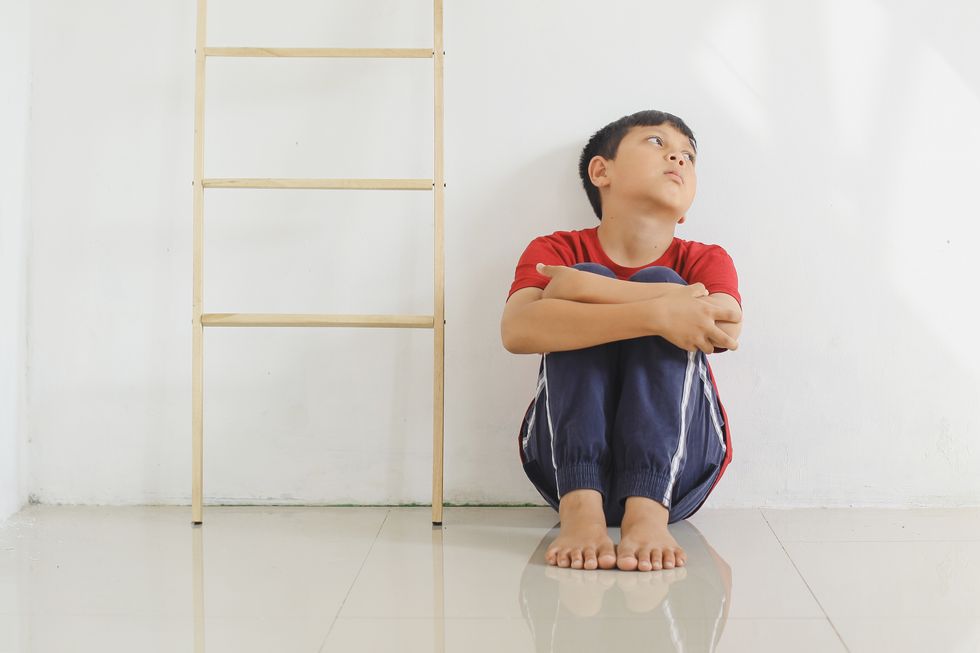Anxiety is a completely normal emotion to feel. Everyone may feel anxious if placed in uncomfortable situations but can easily overcome them. However, anxiety disorder occurs and is diagnosed when the feeling of anxiousness gets in the way of daily functioning.
Many kids experience an anxiety disorder, but it may often just be disregarded as nerves or a kid being scared. However, as a parent, you will need to learn how to deal with your child’s anxiety, properly.
Signs of Anxiety Disorder
A child who is suffering from anxiety may show the following signs:
- Constantly worrying
- Unable to make friends
- Outbursts
- Being uncomfortable in unfamiliar places
- Bed-wetting
- Cannot separate from parents
- Difficulty sleeping
- Stomach pain
- Nausea
- Vomiting
These are only some of the most common signs. Anxiety can also manifest itself in many other ways depending on each child.
What to Do When My Child Has Anxiety?
As a parent, you have to ensure your child can get through their anxiety. While pushing them may help them get over their fears, this does not work for every child. Instead, you may do the following to help:
1. Listen to Them
Children suffering from anxiety may not like to share their feelings. However, the feeling of being heard and understood is the best in the world. It will calm them down and give them a sense of security.
2. Never Overreact
It is very easy to overreact when your child is acting out of the ordinary. However, doing so will only make things worse. Instead, remain calm, and talk to them with a voice that they can hear and understand.
3. Spend Quality Time Together
Spending time with your child will make them feel less alone. It will help you get to know what is making them anxious and how to best address it.
4. Keep Their Day Routine
Anxiety can make your child terribly uncomfortable, which can lead to a change in their daily routine. Doing your best to keep their day to the same routine will help.
5. Reassure Them
Anxiety can make your child feel alone in the world. However, you can help by letting them know that you are there for them. By talking to them and letting them know that you are there to help them when they need it, you can help to relieve some of their anxiety.
6. Encourage Them to Talk about Their Fears
By encouraging your child to speak to you about their fears, it can be easier to help them. By talking about their fears with you, they can feel more at ease and understand what is making them feel anxious. This will not be easy for them. However, by encouraging it, they can feel more comfortable with you and help them get through these feelings.
7. Practice Relaxation Techniques
Helping your child cope with their anxiety can be much easier by giving them ways to relax. Exercises such as deep breathing and yoga can help. If they don’t feel comfortable, then it is best to try other relaxation exercises.
8. Get Them Professional Help
While you can help your child get through anxiety, it can be much easier when getting help from a professional. Professional help means that everything is done for your child, so they don’t have to go through the same struggles that you went through.
Conclusion
Anxiety can make it much harder for a child to live their daily life. If your child is showing signs of anxiety and is unable to cope with the issues surrounding their anxiety, then it is time to seek professional help. This will ensure that your child can have the best chance of overcoming their problems and live a happy life with their family.
If you need psychiatric services in New Hampshire, you can book an appointment with Amodeus Healthcare. We offer both in-clinic psychiatric services and telepsychiatric services, making it more convenient for you. Seeking help is never wrong, and we at Amodeus Health will be there for you if you book our services today.
